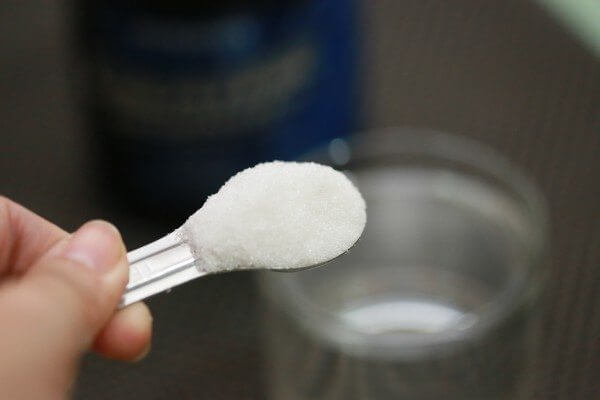Which is the better bodybuilding supplement...Beta Alanine or Creatine? It's a tough choice, so check out this articles to see which is the right choice for you. You may be surprised...
Beta-Alanine vs Creatine: Which Supplement Should You Choose?
In this edition of gym showdown, beta-alanine and creatine are going head to head. In one corner there is beta-alanine, a non-essential amino acid. In the other corner there is creatine, a nitrogenous acid derived from the amino acids methionine (an essential amino acid). In the other we have l-arginine and glycine (two non-essential amino acids). Both beta-alanine and creatine are produced by the body and both are also available in supplemental form.
Beta-alanine
Beta-alanine is one of the only naturally occurring beta-amino acids. It is non-proteinogenic, meaning it is not used to build proteins. The body doesn’t produce beta-alanine directly from foods, as occurs with other amino acids.
This beta-amino acid comes from dipeptides such as anserine, balenine and carnosine. It’s the breakdown of these dipeptides during digestion that allows the body to use beta-alanine. By increasing carnosine levels in the muscle through supplementation with beta-alanine, bodybuilders are able to benefit in a number of surprising ways.
Beta-alanine supplementation helps increase athletic performance by increasing aerobic and anaerobic endurance and increasing lean mass. It also increases strength and allows the athlete to train for longer periods of time, helping the athlete combat episodes of fatigue during training.
It offers the additional benefit of decreasing acidosis which can limit the build-up of lactic acid in the body. The greatest benefit of increasing carnosine levels through beta-alanine supplementation is seen in athletes who perform high-intensity exercises.
In one of the first studies conducted on the effects of beta-alanine supplementation, participants were divided into four groups. One group received a placebo, while the other groups received 800 mg of beta-alanine, 20 g of creatine monohydrate or a combination of creatine and beta-alanine.
The dosage of beta-alanine was given four times a day while the creatine dosage was given only once a day. These participants were then given a cycling test. The study found that the groups receiving the beta-alanine supplement and the creatine and beta-alanine supplement had the greatest results during the beginning and end of the cycling test.
Another study focused on boxers who supplemented their diet with beta-alanine. These boxers consumed beta-alanine four times a day, ingesting 1.5 g at a time.
With supplementation, these athletes were able to increase their punch force and punch frequency significantly. Athletes who engage in activities HIIT, Cross-Fit or train with high reps to exhaustion will greatly benefit by adding beta-alanine to their diet.
The recommended dosage of beta-alanine is 2,000 – 5,000 milligrams per day. It is usually broken down into increments of 800 – 1000 mg several times per day.
Creatine
Creatine is made of three amino acids. It is naturally produced in the liver and supplies the cells in the body with energy. Although this substance is naturally produced in the body, athletes have higher energy demands and thus benefit greatly by creatine supplementation.
Creatine supplementation helps with high intensity training. Whether you’re doing high intensity interval training or engaging in strength training that has you lifting very heavy and performing fewer reps per set, creatine will help you get through your workout routine.
One study in California found that supplementing with creatine increases performance for short and intense strength training exercises.
Supplementing with creatine can help you boost your testosterone levels. Instead of taking testosterone boosters which come with the added risk of heart attacks and strokes, consider supplementing your diet with creatine.
A study conducted in New Jersey revealed that resting levels of testosterone were increased by participants after 10 weeks of using the supplement.
In this study 33 male subjects were divided into groups they were given either a placebo, creatine or a combination of creatine plus beta-alanine. After 10 weeks of strength training, the creatine group was found to have higher levels of resting testosterone.
Bodybuilders know that creatine helps build muscle mass. At Washington State University, a group of researchers found that creatine helped to increase muscle strength and mass.
The most profound increases were found in myogenic satellite cells, which are key in helping the body maintain and regenerate skeletal muscle.
Creatine comes in pills, liquid or powdered form. The recommended dosage is 5 grams per day. Some advocate an initial loading phase, which involves taking 20 grams of creatine for the first 5 days and then lowering the dosage to 5 grams per day.
Make the Right Choice
For the purposes of bodybuilding, both beta-alanine and creatine will help you get greater results from your workout routine. Beta-alanine will help you perform better with high-intensity workouts like interval training, Cross-fit and high rep training.
Creatine will help you with all those things plus can help you increase your testosterone levels. Your workout goals will help you decide which supplement is right for you.





